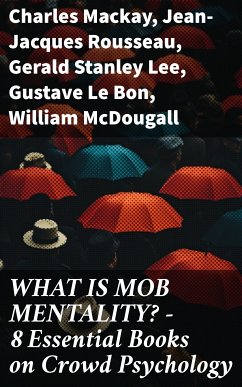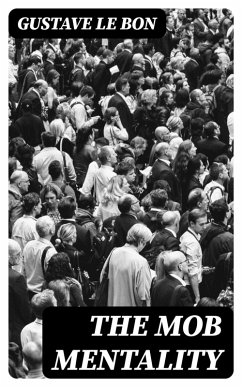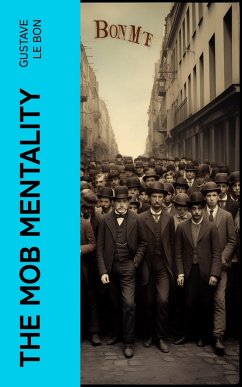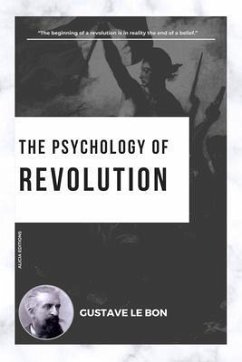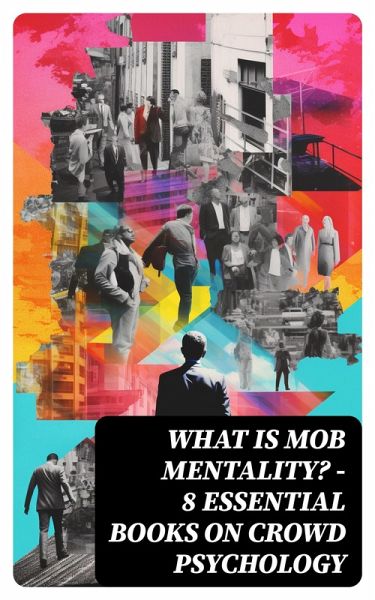
WHAT IS MOB MENTALITY? - 8 Essential Books on Crowd Psychology (eBook, ePUB)

PAYBACK Punkte
0 °P sammeln!
Entitled 'What is Mob Mentality? - 8 Essential Books on Crowd Psychology,' this anthology compiles seminal works exploring the multifaceted concept of crowd psychology. The collection showcases a diverse range of literary styles, from the philosophical musings of Rousseau to the incisive empirical studies of McDougall. These works span various genres and approaches, reflecting on the complexities of human behavior within crowds. This anthology captures the importance and timeliness of its theme, particularly in contemporary society, and serves as an insightful reference for understanding the p...
Entitled 'What is Mob Mentality? - 8 Essential Books on Crowd Psychology,' this anthology compiles seminal works exploring the multifaceted concept of crowd psychology. The collection showcases a diverse range of literary styles, from the philosophical musings of Rousseau to the incisive empirical studies of McDougall. These works span various genres and approaches, reflecting on the complexities of human behavior within crowds. This anthology captures the importance and timeliness of its theme, particularly in contemporary society, and serves as an insightful reference for understanding the psychological mechanisms behind collective behavior. Riveting analyses and poignant observations highlight the anthology, making it a vital resource for both social scientists and the curious reader alike. The collection brings together an impressive roster of authors, each representing different epochs and intellectual traditions. Figures like Gustave Le Bon and Wilfred Trotter delve into early 20th-century perspectives, while Charles Mackay and Rousseau offer foundational texts linking the Enlightenment and Victorian eras to modern psychological theories. The synthesis of these varied voices underscores the enduring relevance of crowd psychology. Rooted in historical, cultural, and psychological inquiry, the anthology is a testament to the evolution of thought around human collectivity across time and contexts. Offering an unparalleled opportunity to explore diverse perspectives in a single compendium, this anthology is ideal for readers seeking a comprehensive understanding of crowd psychology. It invites readers to engage with a rich tapestry of insights, encouraging a deeper appreciation for the dynamics of group behavior. The collection fosters an intellectual dialogue among the authors' works, broadening the reader's perspective and enhancing their comprehension of the overarching themes. Delve into the complexity and intrigue of crowd behavior with this essential resource, a crucial contribution to the field of psychology and contemporary social commentary.
Dieser Download kann aus rechtlichen Gründen nur mit Rechnungsadresse in A, B, BG, CY, CZ, D, DK, EW, E, FIN, F, GR, H, IRL, I, LT, L, LR, M, NL, PL, P, R, S, SLO, SK ausgeliefert werden.




